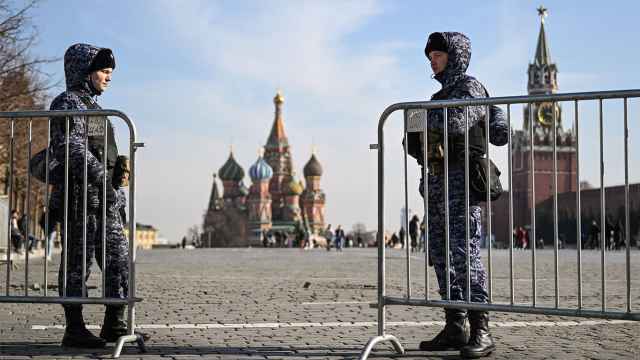The Finance Ministry insisted Friday that firms which have issued more than $100 billion in eurobonds should pay $600 million in tax on past interest payments, drawing a rebuke from a rival ministry in an escalating row over offshore borrowing.
By law, issuers should deduct 20 percent tax on interest at source if the ultimate holder of the eurobonds is not a resident of a country that has a double tax treaty with Russia. Tax inspectors have, however, not collected the levy until now.
"Some professionals put [the tax bill] at $600 million. That's a reasonable estimate," Deputy Finance Minister Sergei Shatalov told journalists.
Shatalov won backing from his colleague, Deputy Finance Minister Sergei Storchak : "I understand that this is now unfortunate for many because it seems unexpected," he told a financial conference. "The law may be bad, but it's the law."
One state firm, oil pipeline monopoly Transneft, has threatened to redeem more than $4 billion in eurobonds at par, a move allowed by bond covenants if tax rules change, potentially inflicting losses on investors as the bonds trade at a premium.
Borrowers accuse the Finance Ministry and tax authorities of moving the goalposts and would be ready to take the matter to court if they do not back down, said one source at a large state-controlled bank.
"You are either consistent and you apply the approach going forward, or you don't collect tax on past interest," the banker said.
They won an ally in Economic Development Minister Elvira Nabiullina, who saw "no grounds" to levy tax on eurobond interest payments. "I view such proposals with great skepticism," she told reporters.
Major state-controlled companies are the country's largest issuers of eurobonds: Gazprom has more than $30 billion in paper outstanding, followed by VTB and Russian Agricultural Bank.
Sberbank this week issued $1.5 billion in five- and 10-year eurobonds, reopening a market that was shut down to Russian last autumn by the deepening sovereign debt crisis in the euro zone.
"We hope that the problem will be resolved and that issuers and investors will not suffer," Sberbank deputy chief executive Anton Karamzin said.
A Message from The Moscow Times:
Dear readers,
We are facing unprecedented challenges. Russia's Prosecutor General's Office has designated The Moscow Times as an "undesirable" organization, criminalizing our work and putting our staff at risk of prosecution. This follows our earlier unjust labeling as a "foreign agent."
These actions are direct attempts to silence independent journalism in Russia. The authorities claim our work "discredits the decisions of the Russian leadership." We see things differently: we strive to provide accurate, unbiased reporting on Russia.
We, the journalists of The Moscow Times, refuse to be silenced. But to continue our work, we need your help.
Your support, no matter how small, makes a world of difference. If you can, please support us monthly starting from just $2. It's quick to set up, and every contribution makes a significant impact.
By supporting The Moscow Times, you're defending open, independent journalism in the face of repression. Thank you for standing with us.
Remind me later.





